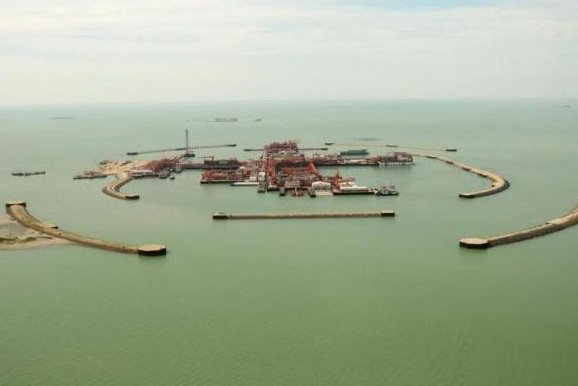Crude oil production from Kazakhstan could increase by the end of the year once operations at its Kashagan oil field are optimized. Photo courtesy of North Caspian Operating Company
June 13 (UPI) -- Kazakhstan, a party to an OPEC-led market balance agreement, has no plans to modify Kashagan production plans, a spokesperson for an energy company said.
Kazakhstan, under the terms of an agreement coordinated by the Organization of Petroleum Exporting Countries, sidelined about 20,000 barrels per day. It's one of a handful of Central Asian producers contributing to a deal to balance an oversupplied market with managed declines in output.
During the weekend, Russia news agency Tass reported that Kazakhstan had agreed to compensate for the expected increase in production from its giant Kashagan oil field so it doesn't violate the terms of the OPEC-led effort. A spokesperson for the North Caspian Operating Co., a consortium managing Kashagan, countered that suggestion when asked for clarification by UPI.
"NCOC is aware of media reports of Kazakhstan's discussions with OPEC," the spokesperson said. "At this time we have not been officially informed of any basis for modifying production plans for 2017."
According to economists at OPEC, oil production in Kazakhstan averaged 1.72 million barrels per day during the first quarter, about 40,000 barrels per day more than the same period last year. Production from Kashagan was higher than expected in March, reaching 190,000 barrels per day by the end of that month.
"However, the government hopes to reduce oil production at other fields in the coming months when the weather becomes warmer," OPEC's monthly report from May read.
The NCOC spokesperson said that, once operations are optimized, Kashagan production could reach 370,000 barrels per day.
Parties to the OPEC production deal in May agreed to extend the terms into early 2018 to offset some of the lingering supply-side issues dragging crude oil prices lower. Saudi Oil Minister Khalid al-Falih was quoted by Tass as saying "there is no evidence that we have to make any adjustments now."















